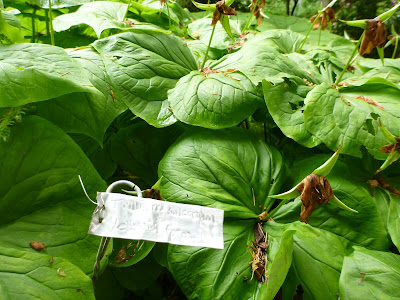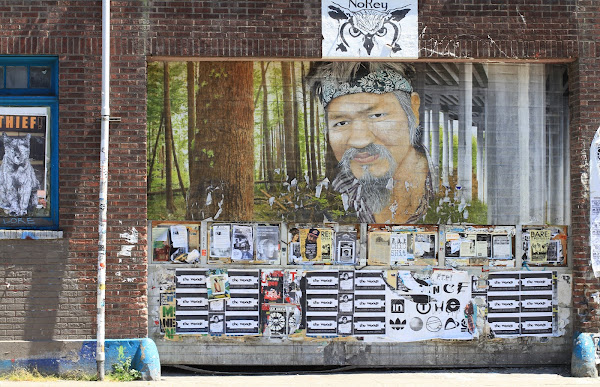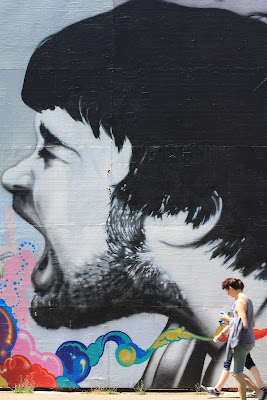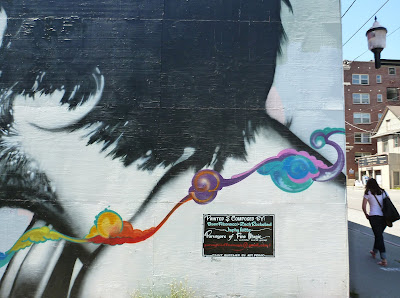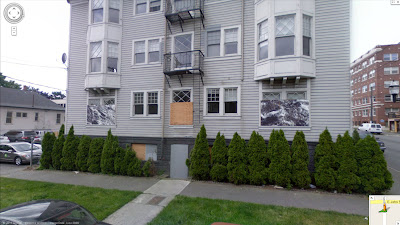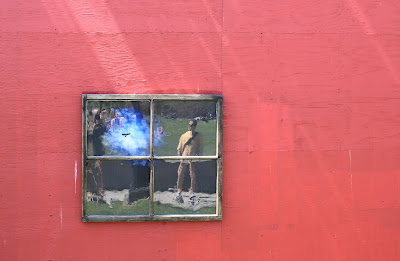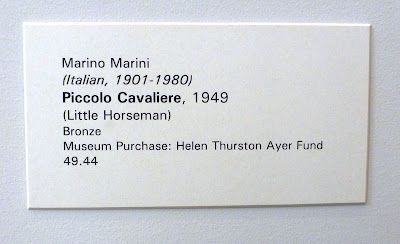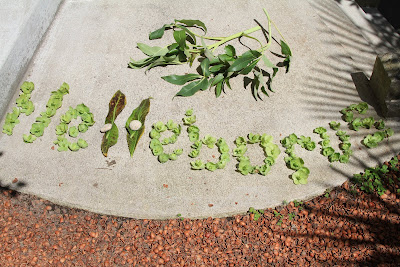Looking East Over the Great Lawn (top left), Magnolia acuminata (top right), Perennial Border (bottom left), Section of Fujitaro Kubota Garden Near Bayley Residentce (bottom right)




The Dunn Gardens is an example of a summer estate created by the Olmsted Brothers landscape architecture firm for clients in the Pacific Northwest. According to HistoryLink, Dunn Gardens is one of 140 private gardens designed by the Olmsted Brothers out of 200 in the Northwest.
The Olmsted Brothers firm was run by John Charles Olmsted (1852 - 1920) and Frederick Law Olmsted, Jr. (1870 - 1957), sons of the father of landscape architecture, Frederic Law Olmsted Sr. (1922 - 1903). The brothers’ firm grew out of their father’s firm; the word “Brothers” was added in 1898 as Olmsted Sr.’s health began to fade [1]. Frederic Law Olmsted Sr. established the Olmsted firm in 1858 and designed some of the most notable public spaces in the United States including Central park in New York City and the Boston Commons. In Seattle, the Olmsted Brothers seem to have a hand in all the well-known parks (Woodland, Volunteer, and Seward to name a few). They were also involved in the University of Washington Campus and the grounds of the Alaska-Yukon-Pacific Exposition held on the campus in 1909.
Arthur G. Dunn (1861 - 1945) came to Seattle in 1889 and made a fortune in the cannery business. In 1914, Dunn purchased a 10 acre property in the Broadview from his friend John Agen. The two friends hired Olmsted to landscape their adjoining estates simultaneously. Dunn’s estate was to become a summer retreat to escape the hustle and bustle of the city. (Now the summer retreat is just a quick 15 minute drive from downtown Seattle.)
Dunn Gardens offers an interesting perspective on a couple of things.
Aesthetic Encounter: We left the garden with a heightened garden aesthetic, inspired to revamp neglected patches and neglected parts of our modest garden.
Rhododendrons: Our usual encounter with rhododendrons is either that the poor plants are planted too close to a house foundation or the strange clumps of them with gaudy blooms typical of some suburban developments. However, at Dunn Gardens we developed a new respect for rhododendrons. Edward Bernard Dunn (1904 - 1991), son of Arthur, was an accomplished gardener and hybridizer of rhododendrons. There were many rhododendrons at Dunn Gardens that had a scent - a pleasant surprise. Speaking of Ed Dunn, he was the one who left an endowment to preserve and maintain his portion of the estate, with conservation easements to the other two remaining parcels of the original estate, make up Dunn Gardens today.
Robinsonian Garden: William Robinson (1838 - 1935) was an Irish gardener and journalist who advocated for the wild garden or woodland garden as opposed to the more formal Victorian garden designs popular during his life. Dunn Gardens is an example this aesthetic. This woodland garden exhibits sprezzatura: the effortless look of a natural setting as if no planning or hours went and will go into maintaining it.
The tour lasted about an hour and half and consisted of walking the estate with a docent, Tanya, who was happy to share info about plants and the history of the gardens. While there were a lot of spectacular plants that we saw, some in particular to call out are:
- Davidia involucrata - Handkerchief or Dove Tree. Location: Station 14.
- Enkianthus campanulatus - Red Vein Enkianthus. Location: Station 12.
- Lilium martagon - Martagon Lily. Location: various.
- Cladrastis kentukea - Yellow Wood Tree. Location: Station 3.
- Magnolia acuminata - Cucumber Magnolia or Pickle Tree. One of the largest in the state. Location: Station 5.
- Erythronium revolotum - Glacier Lily. A plant that Ed Dunn especially was famous for. Location: various.
- Mahonia x media cultivar. Location: Station 11.
References:
[1] Greenscapes - Olmsted’s Pacific Northwest by Joan Hockaday
Barbara Leede Bayley Classroom (left), Characteristic Olmsted Stairs Uncovered in 1992 (right)


Cardiocrinum giganteum (left), View of the Great Lawn and Magnolia acuminata - Cucumber Magnolia Tree (right)
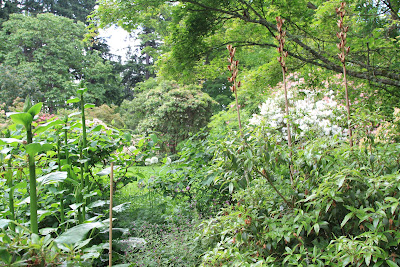
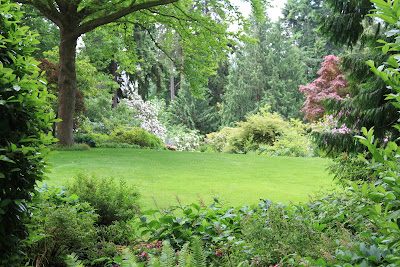
Davidia involucrata - Handkerchief or Dove Tree (left), Croquet Lawn and Heather Berm (right)
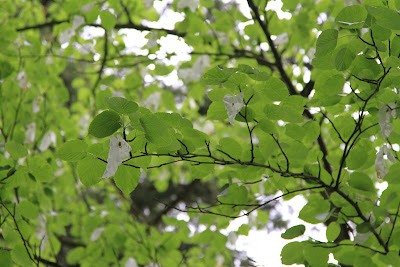
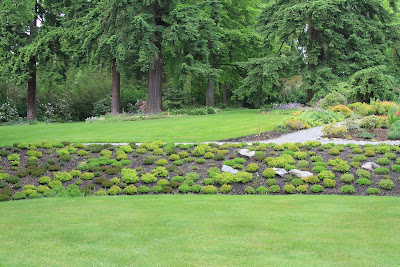
Flowers and Bayley Residence (left), Enkianthus campanulatus (right)
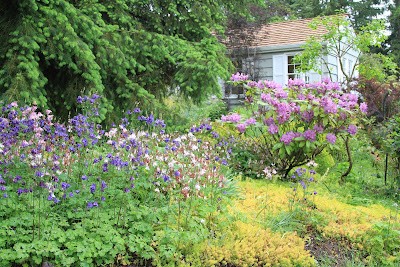

Great Lawn - Plantings Under Douglas Fir (left), Mahonia x media cultivar (right)


Greenscapes - Olmsted’s Pacific Northwest by Joan Hockaday Front (left), Back (right)


One of the Trails at Dunn Garden (left), Enkianthus campanulatus (right)


Rhododendron with Pink Cotton Candy Trusses (left), Unknown Rhodie (right)
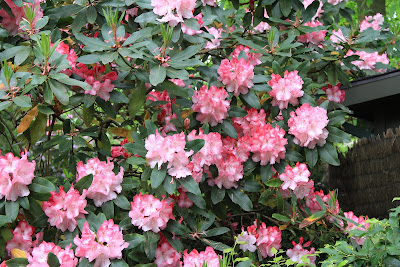

The Slat House


Reproductions of Dunn Garden Design in Classroom (left), Trillium sulcatum forma albolutescens (right)

